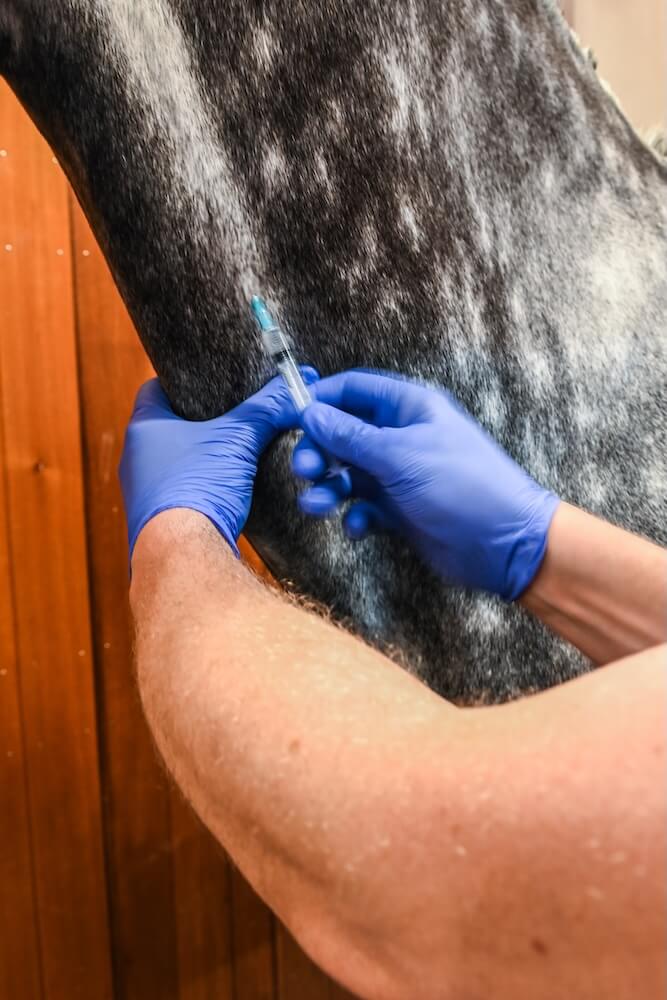Transvenous electrical cardioversion is an advanced treatment used in horses to restore atrial fibrillation to a normal heart rhythm (sinus rhythm). This arrhythmia occurs mainly in sport horses and often leads to performance loss, reduced stamina, and in some cases even life-threatening situations during intense exercise.
In atrial fibrillation, the atria of the heart no longer contract in a coordinated manner, reducing the pumping function of the heart. Horses with this condition may appear normal at rest but show problems during more intense exercise.
Treatment
Transvenous electrical cardioversion (TVEC) is performed by a European Specialist in Equine Internal Medicine. The procedure is carried out under general anesthesia in a controlled and safe environment:
- Through the jugular vein, two special electrodes (catheters) are inserted and placed in the atria of the heart under ultrasonographic guidance.
- The horse is placed under general anesthesia to prevent movement and stress.
- A targeted electrical current is then delivered through a defibrillator, resetting the electrical activity of the atria.
- In most cases, a single impulse is sufficient to restore sinus rhythm.
Optimal guidance during TVEC
Before the procedure, a thorough evaluation of heart function is performed, including echocardiography and ECG. After treatment, the horse is also closely monitored and guided.

